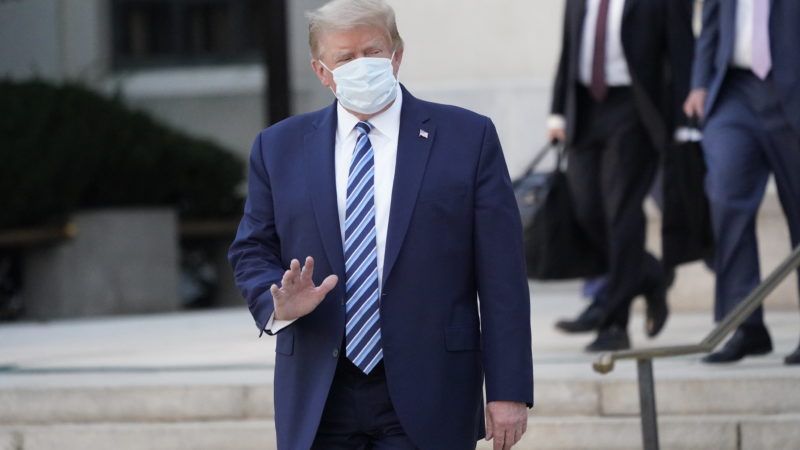Trump Tweets 'Repeal Section 230,' Something He Couldn't Do if Section 230 Were Repealed
You want censorship? This is how you get censorship.

On Tuesday, President Donald Trump tweeted "REPEAL SECTION 230!!!" The three exclamation points underscore his enthusiasm for undoing the federal statute that protects social media companies from liability for user-generated content.
REPEAL SECTION 230!!!
— Donald J. Trump (@realDonaldTrump) October 6, 2020
It's an ironic statement since, without the existence of Section 230, Trump very well might not be able to tweet it. If Congress were to remove social media platforms' liability protection, then companies like Twitter and Facebook would have no choice but to remove users' ability to post content at-will. Instead, moderators would have to vet and approve content to make sure that it wasn't potentially libelous.
This would exacerbate the very problem that many conservatives have with social media—namely, that Twitter (and to a lesser extent, Facebook) sometimes takes aggressive action against provocative right-wing speech, by labeling the content as misleading or removing it outright. In some cases, the platforms' treatment of right-wing users does seem overly harsh, or selective in nature—though it is by no means the case that conservatives are the only ones to suffer from harsh and thoughtless moderation. Repealing Section 230, though, is not a solution, unless the goal is to prevent Twitter and Facebook from functioning at all.
Conservatives—and anyone whose views and statements fall outside a narrow window of mainstream respectability—should think long and hard about whether they really want to go down that road. The demise of social media would limit the ability of people to express themselves on the internet, a venue where right-leaning speech has actually flourished: Facebook posts by Ben Shapiro, Fox News, Breitbart, and others are routinely the most-read content on the site. It is Trump's great enemy, the mainstream media, which would benefit most directly from the collapse of these spaces for disseminating information.
Given this, it's no surprise that former Vice President Joe Biden also wants to repeal Section 230. This makes perfect sense: Biden and his allies correctly realize that forcing social media to adopt more guardrails would result in wider moderation of conservative speech. Regulating the internet more aggressively is a straightforwardly beneficial plan for mainstream media–friendly Biden-ism. That Trump is seemingly on board with this plan shows that the president either hasn't thought about this issue very hard or doesn't actually care about expanding the opportunities for conservative speech online. Or perhaps both.


Show Comments (323)